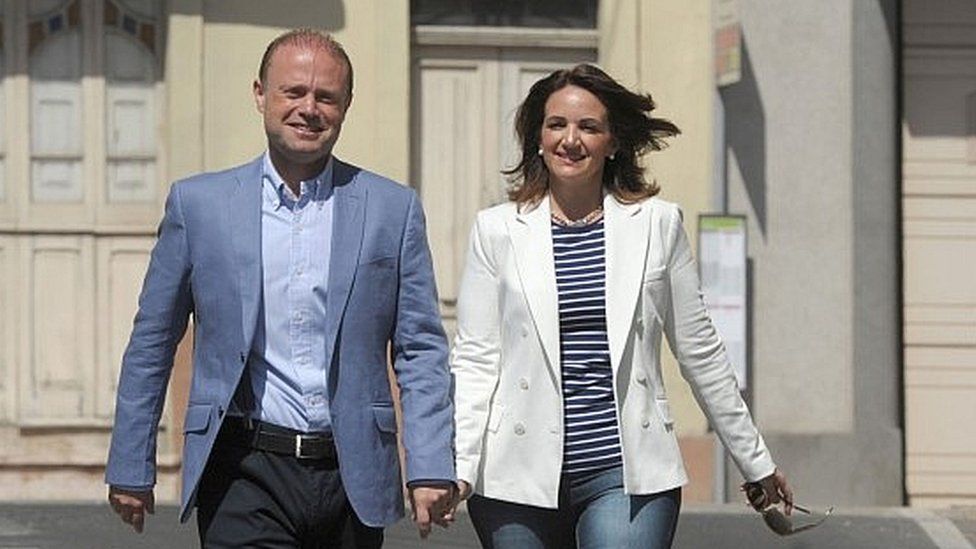Malta election: PM Joseph Muscat wins snap poll
- Published

Malta's Prime Minister Joseph Muscat has won the snap general election he called a month ago amid corruption allegations concerning his wife.
The full results have yet to be announced. But Mr Muscat claimed victory based on projections and the opposition's Simon Busuttil conceded.
The Labour PM called the poll on 1 May saying the corruption allegations risked undermining the economy.
He and his wife deny claims she owned a secret offshore company in Panama.
The issue of the company, alleged to have received payments from Azerbaijan's ruling family, was first brought to light by a well known Maltese blogger.
Projections based on preliminary results gave Mr Muscat's Labour Party a lead of 10%. More than 340,000 people were eligible to vote in Saturday's poll.
Opinion polls in the run-up to the vote had suggested a 5% lead for Mr Muscat, who is now set for a second five-year term in office.
The election was called a year before the end of his first term.
Mr Busuttil, leading the National Party into an election for the first time, said on Twitter that he respected the decision of the electorate.
Malta is enjoying growth of 6% and low unemployment - a performance that was central to Mr Muscat's campaign.
The prime minister, 43, said: "The people have clearly chosen to stay on the road to even greater results".
A judicial investigation is under way into the allegations of improper business transactions by his wife, Michelle, and associates.
Mr Muscat rejected opposition calls to step down and has described the allegations as "the mother of all lies".
A total of 224 candidates stood for seats in the 65-member parliament.
Malta - population 400,000 - currently holds the European Union's rotating six-month presidency.
- Published25 May 2017
- Published19 June 2023